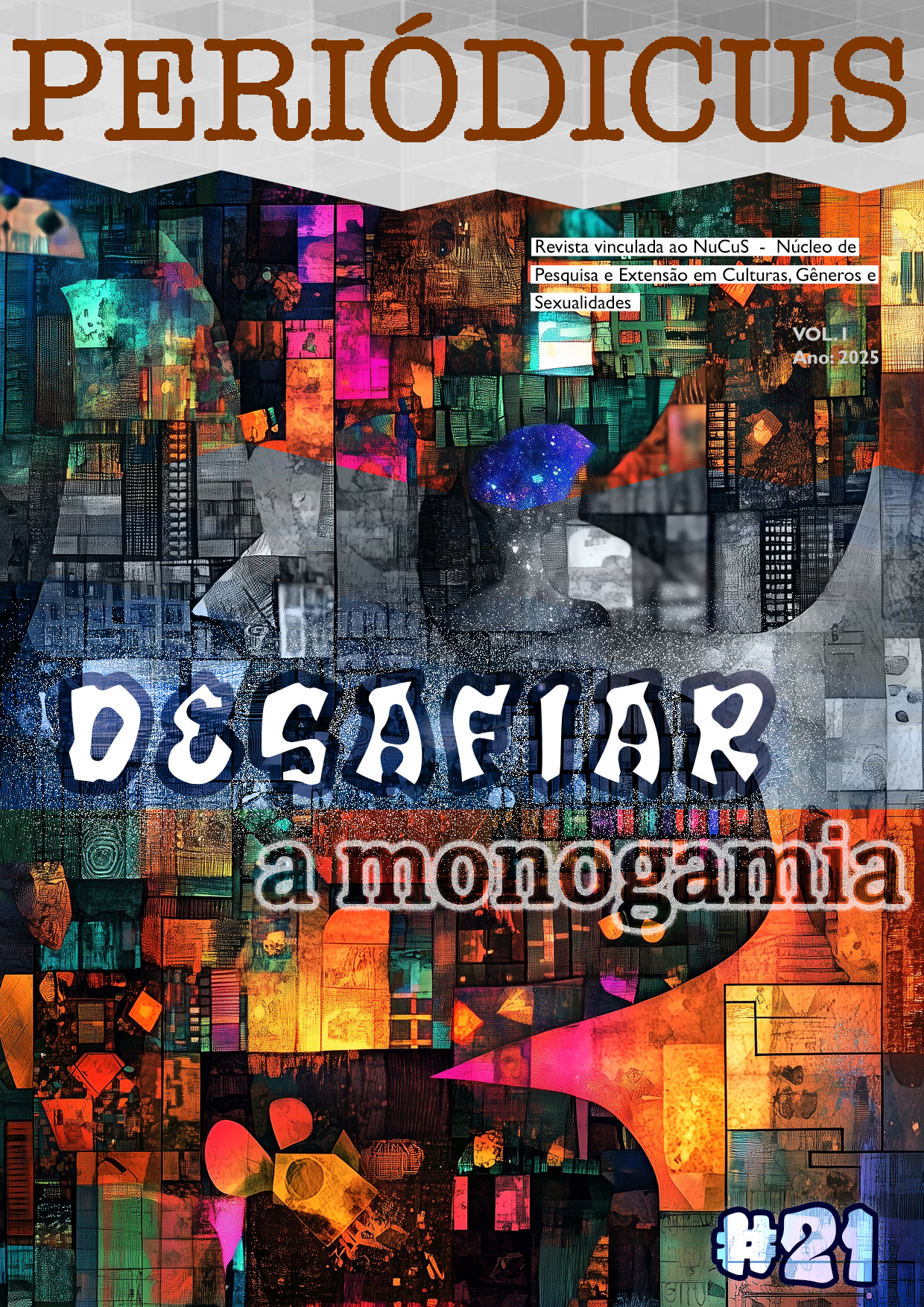Decolonizing love
Afrocentric relationships and the break with monogamy
DOI:
https://doi.org/10.9771/peri.v1i21.58591Abstract
The impacts of colonization interfere in various areas of the black population's life, including their affections. In this context, Afrocentric affective-sexual relationships appear as a strategy of healing and resistance. However, the monogamous structure and Eurocentric ideals about love have an impact on the construction of these relationships, so that they reproduce oppression. For this reason, part of this population has been moving to decolonize their vision of love and build countercolonial relationships. This paper aims to understand Afrocentric relationships, the break with the monogamous structure, and the transformation of the racial experience of black people, based on a narrative review. In this article, it is possible to understand the colonial impacts on the affective experience of black people, the encounter between them as a strategy for transforming the subjective experience, and the sense of community and belonging who acts a transforming play their relationships.
Downloads
Downloads
Published
How to Cite
Issue
Section
License
Copyright (c) 2025 Giovana Carla de Jesus Santos, Lidia Sousa Santos, Letícia Cardoso Barreto

This work is licensed under a Creative Commons Attribution-NonCommercial 4.0 International License.
Authors who publish in this journal agree to the following terms:
Authors retain copyright and grant the journal the right of first publication, with the work simultaneously licensed under a Creative Commons Attribution Noncommercial License that allows the work to be shared with acknowledgment of authorship and initial publication in this journal, but prohibits commercial use.
Authors are authorized to enter into separate additional contracts for non-exclusive distribution of the version of the work published in this journal (e.g., publishing in an institutional repository or as a book chapter), with acknowledgment of authorship and initial publication in this journal.
Authors are permitted and encouraged to publish and distribute their work online (e.g., in institutional repositories or on their personal website) at any point before or during the editorial process, as this can generate productive changes and increase the impact and citation of the published work (see The Effect of Open Access).








